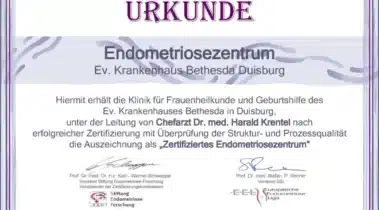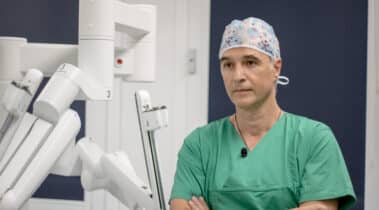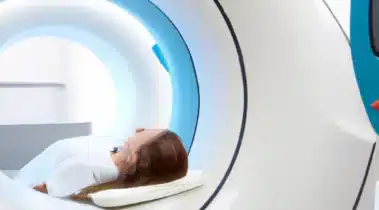The immune system of the human body is able to independently kill malignant cells. However, in some cases, an uncontrolled mutation occurs that the immune system cannot cope with, the cells begin to divide randomly and the disease progresses. Scientists have deciphered why this happens and, based on this knowledge, have developed tumor immunotherapy - a therapy that can help your own immune system find the mutated cell and destroy it. In Germany, especially in recent years, great advances have been made in the treatment of many types of tumors, the prognosis has improved significantly.
An oncologist talks about immunotherapy other honey. A. Nush.
What are the features of treatment with immunotherapy in your clinic?
First of all, our patients undergo special molecular genetic testing, the purpose of which is to check whether immunotherapy is suitable for them. Sometimes it happens that the patient's tumor responds to completely different drugs than it is stated in the standard treatment protocols. Based on genetic testing, we can choose exactly the drug that will work for a particular patient.
Our clinical research team carefully monitors all trends in the field of immunotherapy and constantly updates therapeutic recommendations. We participate in many clinical studies, this allows our patients to receive the most relevant and effective therapy that exists at the moment. The clinic successfully uses immunopreparations such as Keytruda (Pembrolizumab), Opdivo (Nivolumab), Yervoy (Ipilimumab), which have long been known in medical circles. However, there is the possibility of using drugs that have been recently approved or are undergoing the last phase of accreditation.
So, in the near future, we and the entire world community are looking forward to a new drug based on the bifunctional hybrid protein bintrafusp alfa (bintrafusp alfa, M7824) for the treatment of tumors associated with the human papillomavirus (such as, for example, cervical cancer or tumors of the larynx) .
Some theoretical information for readers - How does immunotherapy work in principle?
There are various effects of immunotherapy, they are divided into non-specific and specific, as well as active and passive.
What is the difference between specific and non-specific effects of immunotherapy?
Non-specific immunotherapy activates the immune system very broadly in order to start fighting tumor cells again. Patients are given special hormones, such as interleukins or interferons, that non-specifically stimulate the immune system. Specific immunotherapies using certain proteins, namely tumor antigens, allow the immune system to recognize the tumor as foreign and destroy it. Tumor antigens have characteristics typical of tumor cells. The immune system must respond to these antigens and then destroy the tumor cells.
How is this reaction to tumor antigens induced?
Vaccine example. These are vaccine preparations containing tumor antigens, and usually stimulate the immune system through a maintenance adjuvant. After vaccination, a targeted immune response against tumor antigens occurs.
What is meant by active immunotherapy?
Active immunotherapy with so-called check-point inhibitors is the most potent treatment currently available. In recent years, great strides have been made in this area. Immunological check-point molecules are the natural brakes on our immune system. They should, after a successful protective action, bring our immune system to a calm state so that an excessive autoimmune reaction does not occur.
Interestingly, in malignant tumors, especially a lot of "brakes" are built in. With the help of blocking antibodies against the check-point molecule CTLA4 and PD1, the immune system works so hard that it can cause tumor regression. Scientists use this knowledge in the fight against cancer.
How exactly is it used?
There are tumors that, for example, produce the so-called PD-L1 protein. The abbreviated name here is Programmed Death Ligand 1. Scientists have developed various antibodies that prevent PD-L1 from interacting with T cells. In this way, tumor cells are again recognized and destroyed by T cells.
Every year, new antibodies and new active substances are developed and put into practice to destroy other "brakes" of the immune system. Particularly promising are antibodies directed against PD1 checkpoint antigens.
When do oncologists use this active immunotherapy?
Until recently, only as a second-line therapy for advanced tumor diseases. Recently, this therapy has also been used as a first-line therapy for tumors with metastases, such as lung carcinoma. It is also used in adjuvant therapy without the presence of metastases, and is also increasingly used in neoadjuvant therapy, primarily for melanoma, for tumors of the bladder, kidneys, head, neck. The application possibilities are becoming more and more diverse.
Are new antibodies effective in treating all patients?
Unfortunately no. Treatment is effective for approximately 20-40% patients. But this figure is constantly improving. To this are added all the new possibilities of treatment, the so-called passive immunotherapy. Promising is CAR-T-cell therapy.
How it works CAR—Tcell therapy?
CAR stands for chimeric antigen receptor. This CAR-T cell therapy is a very new therapy and it is used against leukemias and lymphomas. The patient's T cells acquire the ability to attack tumor cells directly.
To do this, doctors select white blood cells from the patient, then in the laboratory they are genetically modified with CAR. After that, genetically modified protective cells increase in number and then are injected back into the patient intravenously. CAR-T cells target cancer cells.
What side effects can be expected with immunotherapy?
When the brakes on the immune system are released, it can lead to the development of autoimmune diseases. This primarily includes inflammation of the intestines, skin, lungs, as well as hepatitis. Most of these side effects respond well to treatment, often with cortisone. By recognizing side effects in time, most patients tolerate treatment relatively without complaints of well-being. With CAR-T cell therapy, severe side effects such as fever, a sharp drop in blood pressure, and neurological disorders can occur, which necessitates intensive care. Therefore, the use of CAR-T-cell therapy is possible only in specialized centers.
Thanks for the detailed information Dr. Noush. We hope it will be useful for our readers.










